Xingyu Mu
Driving Tasks Transfer in Deep Reinforcement Learning for Decision-making of Autonomous Vehicles
Oct 10, 2020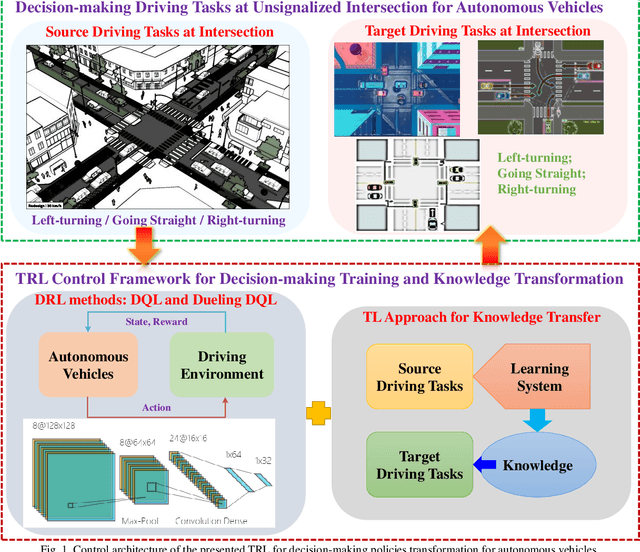

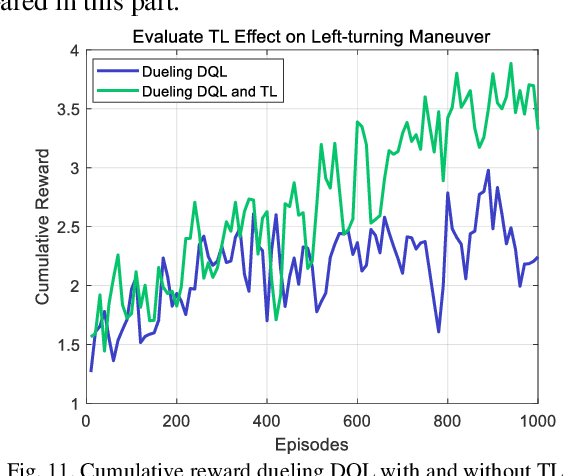
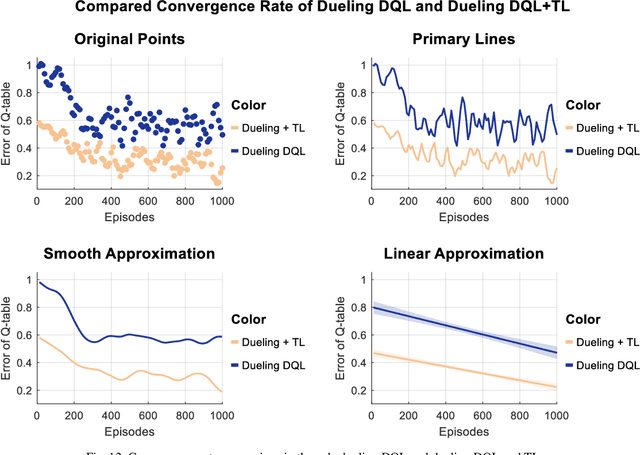
Abstract:Knowledge transfer is a promising concept to achieve real-time decision-making for autonomous vehicles. This paper constructs a transfer deep reinforcement learning framework to transform the driving tasks in inter-section environments. The driving missions at the un-signalized intersection are cast into a left turn, right turn, and running straight for automated vehicles. The goal of the autonomous ego vehicle (AEV) is to drive through the intersection situation efficiently and safely. This objective promotes the studied vehicle to increase its speed and avoid crashing other vehicles. The decision-making pol-icy learned from one driving task is transferred and evaluated in another driving mission. Simulation results reveal that the decision-making strategies related to similar tasks are transferable. It indicates that the presented control framework could reduce the time consumption and realize online implementation.
Decision-making at Unsignalized Intersection for Autonomous Vehicles: Left-turn Maneuver with Deep Reinforcement Learning
Aug 14, 2020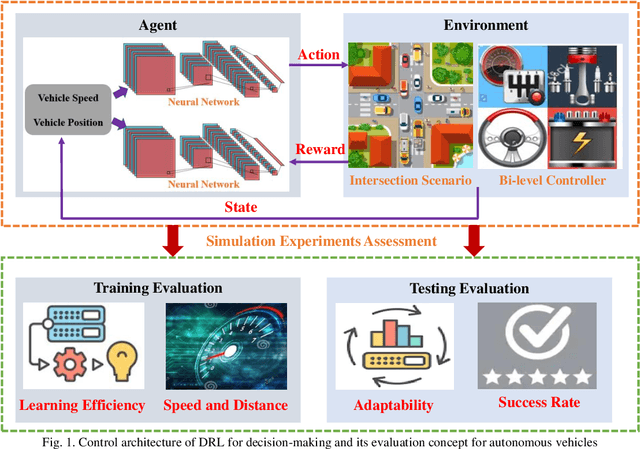


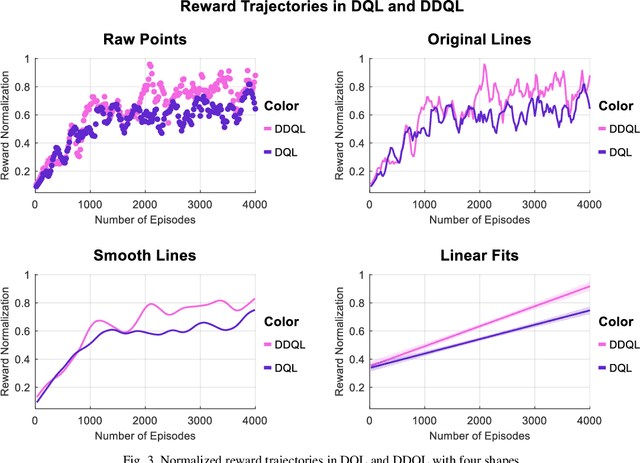
Abstract:Decision-making module enables autonomous vehicles to reach appropriate maneuvers in the complex urban environments, especially the intersection situations. This work proposes a deep reinforcement learning (DRL) based left-turn decision-making framework at unsignalized intersection for autonomous vehicles. The objective of the studied automated vehicle is to make an efficient and safe left-turn maneuver at a four-way unsignalized intersection. The exploited DRL methods include deep Q-learning (DQL) and double DQL. Simulation results indicate that the presented decision-making strategy could efficaciously reduce the collision rate and improve transport efficiency. This work also reveals that the constructed left-turn control structure has a great potential to be applied in real-time.
A Comparative Analysis of Deep Reinforcement Learning-enabled Freeway Decision-making for Automated Vehicles
Aug 04, 2020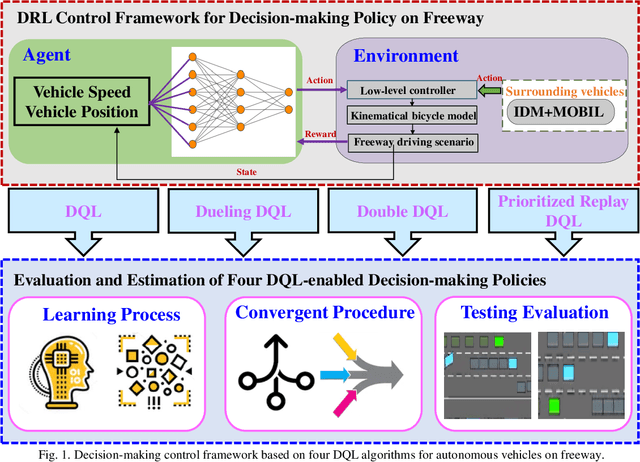
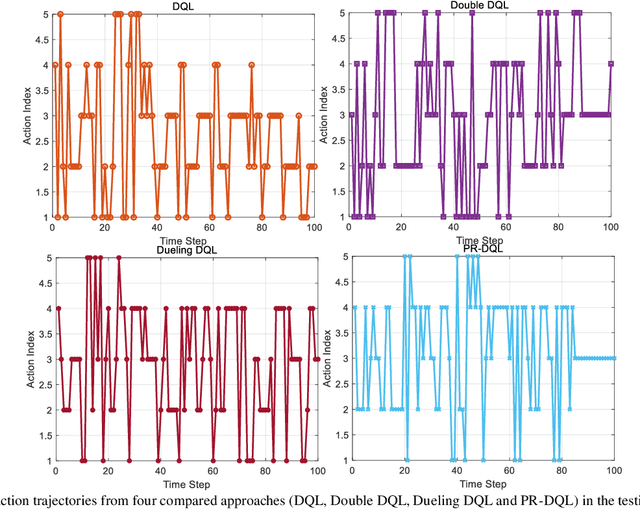
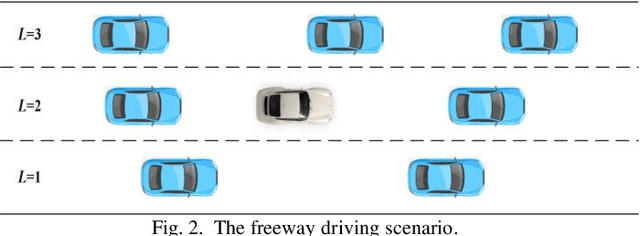
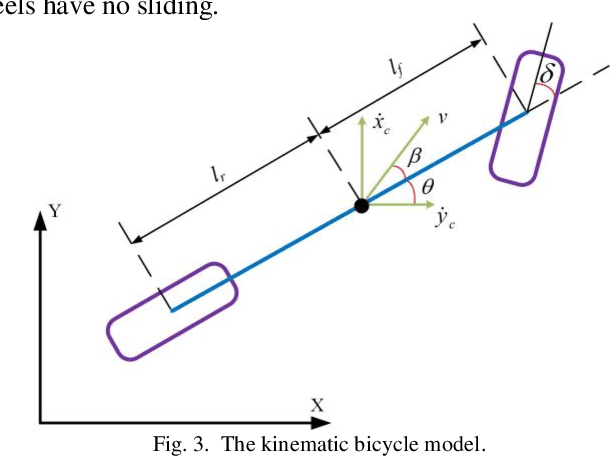
Abstract:Deep reinforcement learning (DRL) is becoming a prevalent and powerful methodology to address the artificial intelligent problems. Owing to its tremendous potentials in self-learning and self-improvement, DRL is broadly serviced in many research fields. This article conducted a comprehensive comparison of multiple DRL approaches on the freeway decision-making problem for autonomous vehicles. These techniques include the common deep Q learning (DQL), double DQL (DDQL), dueling DQL, and prioritized replay DQL. First, the reinforcement learning (RL) framework is introduced. As an extension, the implementations of the above mentioned DRL methods are established mathematically. Then, the freeway driving scenario for the automated vehicles is constructed, wherein the decision-making problem is transferred as a control optimization problem. Finally, a series of simulation experiments are achieved to evaluate the control performance of these DRL-enabled decision-making strategies. A comparative analysis is realized to connect the autonomous driving results with the learning characteristics of these DRL techniques.
Decision-making Strategy on Highway for Autonomous Vehicles using Deep Reinforcement Learning
Jul 16, 2020


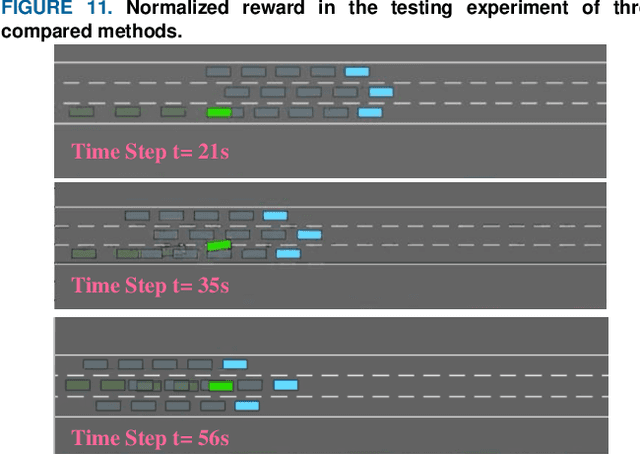
Abstract:Autonomous driving is a promising technology to reduce traffic accidents and improve driving efficiency. In this work, a deep reinforcement learning (DRL)-enabled decision-making policy is constructed for autonomous vehicles to address the overtaking behaviors on the highway. First, a highway driving environment is founded, wherein the ego vehicle aims to pass through the surrounding vehicles with an efficient and safe maneuver. A hierarchical control framework is presented to control these vehicles, which indicates the upper-level manages the driving decisions, and the lower-level cares about the supervision of vehicle speed and acceleration. Then, the particular DRL method named dueling deep Q-network (DDQN) algorithm is applied to derive the highway decision-making strategy. The exhaustive calculative procedures of deep Q-network and DDQN algorithms are discussed and compared. Finally, a series of estimation simulation experiments are conducted to evaluate the effectiveness of the proposed highway decision-making policy. The advantages of the proposed framework in convergence rate and control performance are illuminated. Simulation results reveal that the DDQN-based overtaking policy could accomplish highway driving tasks efficiently and safely.
Dueling Deep Q Network for Highway Decision Making in Autonomous Vehicles: A Case Study
Jul 16, 2020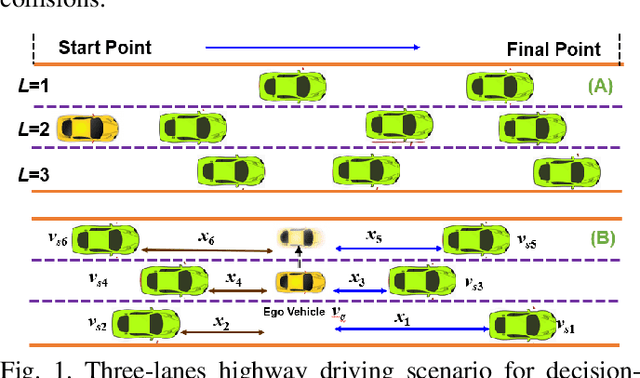
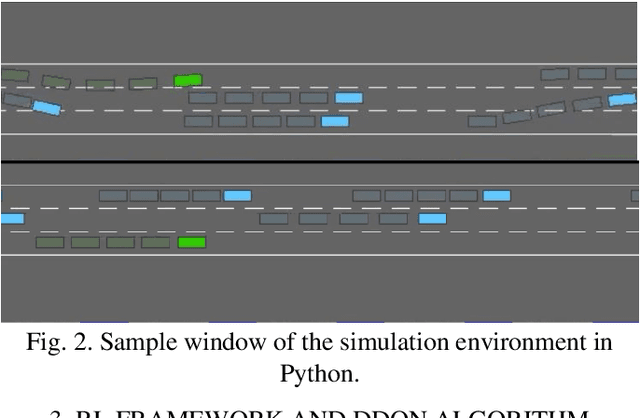
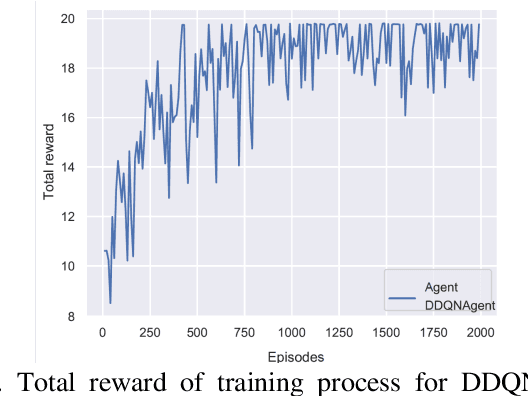
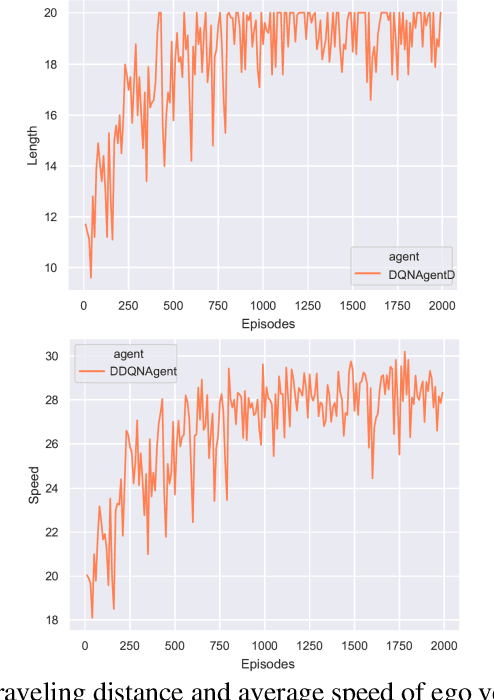
Abstract:This work optimizes the highway decision making strategy of autonomous vehicles by using deep reinforcement learning (DRL). First, the highway driving environment is built, wherein the ego vehicle, surrounding vehicles, and road lanes are included. Then, the overtaking decision-making problem of the automated vehicle is formulated as an optimal control problem. Then relevant control actions, state variables, and optimization objectives are elaborated. Finally, the deep Q-network is applied to derive the intelligent driving policies for the ego vehicle. Simulation results reveal that the ego vehicle could safely and efficiently accomplish the driving task after learning and training.
 Add to Chrome
Add to Chrome Add to Firefox
Add to Firefox Add to Edge
Add to Edge